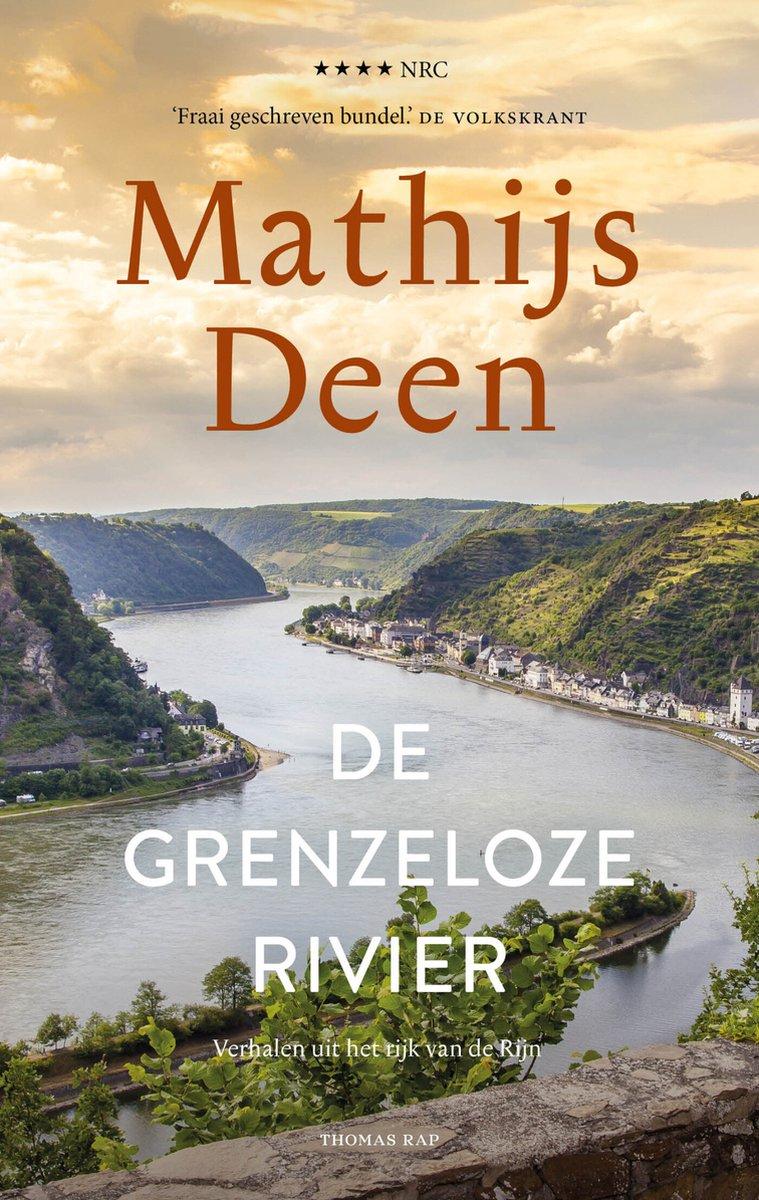The Boundless River
In 'The Boundless River' Deen does not tell the story of the Rhine directly, from source to sea, but as a current fed by many tributaries. Meandering from the mighty hippos that once grazed on the river’s banks millions of years ago to the exhausted salmon that saw their habitat slowly change, from the girl from ancient Steinheim to the Roman general Corbulo, to the young Goethe and the North Sea fisherman Kommer Tanis – Deen tells stories in which the Rhine is ever present, at times in the lead role, at others as an extra. He shows how, since the beginning of time, the river has connected and divided, terrified, consoled, sustained and engulfed.

The Boundless River takes the same approach as Deen’s acclaimed books The Wadden Islands and Down Old Roads, set in the grey zone between fact and fiction, knowledge and imagination. ‘Imagine the river is a character, she’ll need a birth and death as well. Tell me how she was born.’ This is what Deen asks his friend, a geologist, one sunny day in September. The answer that follows is the start of a journey that will carry the reader from a time far before we ever spoke of a European continent to the current day, in which skippers still regard the Rhine as a living being.
Deen tells his story as a conversation with his contemporaries, a geologist, a skipper, a primary school teacher, the paleo-geographer Kim Cohen, who tells him that the Rhine does not start in the Alps, but flows together from all parts of Europe, from Italy to the Netherlands, from Saxe-Weimar to France. But the river’s contemporaries also speak, such as the girl from Steinheim, who drowned in the Rhine 300,000 years ago, and Julius Caesar, who saw the river as the border of his empire. We hear of Charlemagne, who tried in vain to connect the river with a canal on the Danube, and the countless generals, from Pichegru to Patton, who had to cross the river. This makes The Boundless River not only a history of one of the most powerful manifestations of European nature, but also a history of the cultures that emerged on the banks of the Rhine.
Mathijs Deen is an exceptional prose stylist.
Het Parool (on ‘Down Old Roads’)
Deen’s impressive fund of historical knowledge allows him to travel effortlessly through the centuries.
NRC Handelsblad (on ‘Down Old Roads’)
-peter-arno-broer-(v).jpg&w=640&q=75)